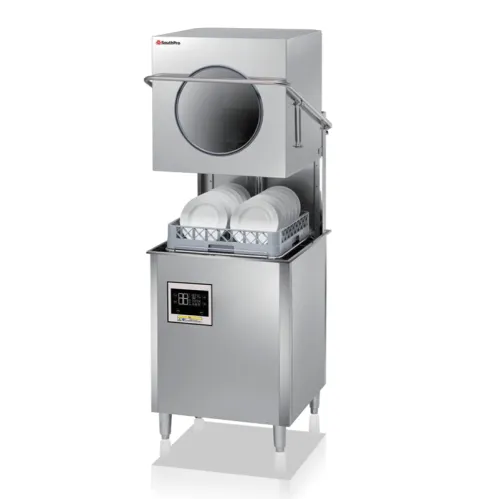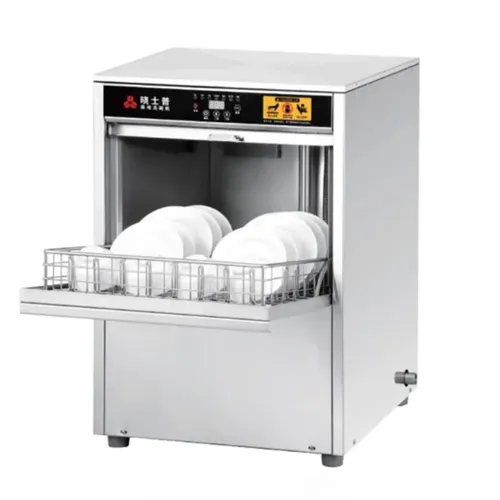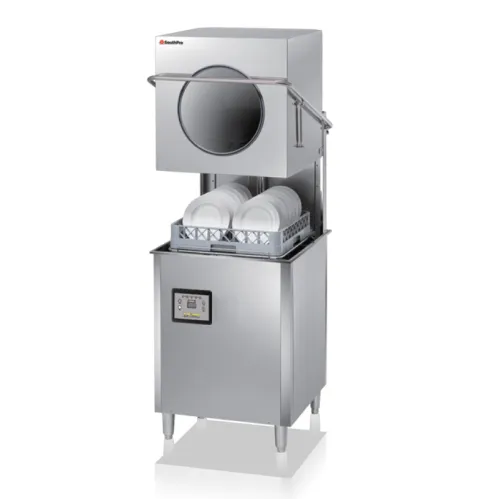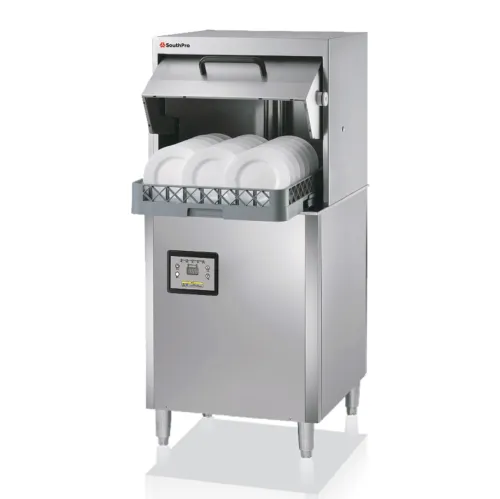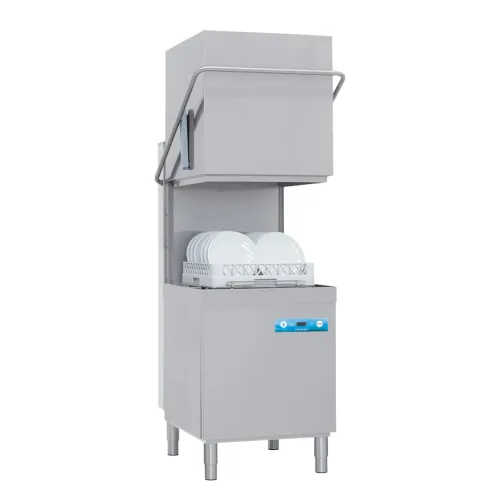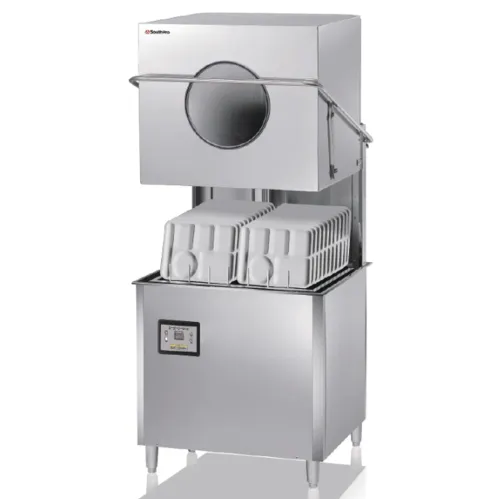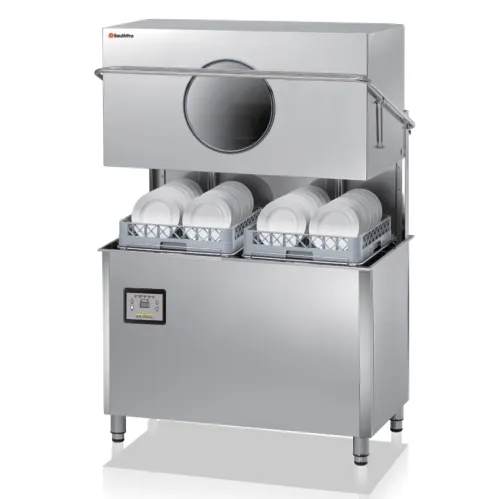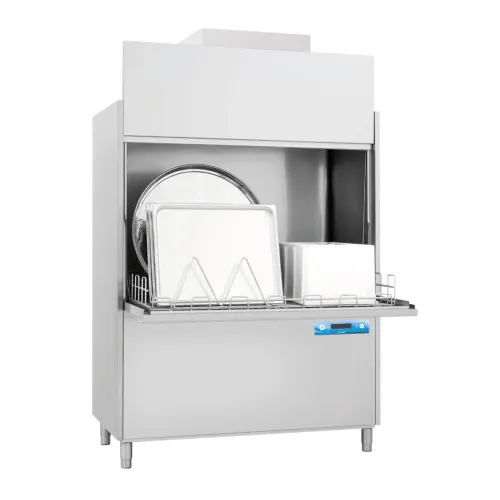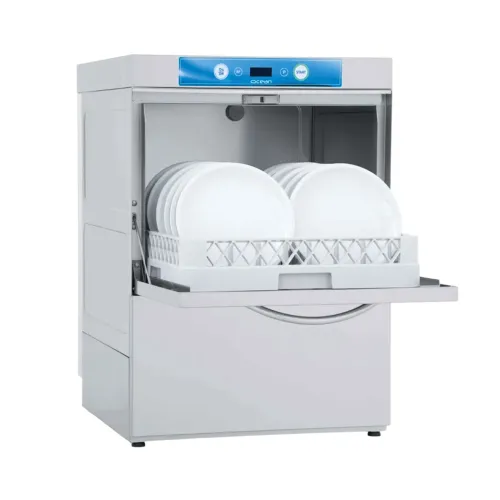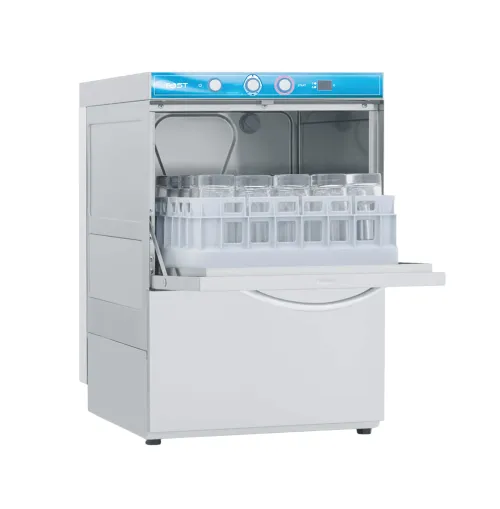Dishwashing
A dishwashing machine is a mechanical device for cleaning dishware and cutlery. Unlike manual dishwashing, which relies largely on physical scrubbing to remove soiling, the mechanical dishwasher cleans by spraying hot water, typically between 45 and 75 °C (110 and 170 °F), at the dishes, with lower temperatures used for delicate items.
A mix of water and dishwasher detergent is pumped to one or more rotating spray arms, which blast the dishes with the cleaning mixture. Once the wash is finished, the water is drained, more hot water is pumped in and a rinse cycle begins. After the rinse cycle finishes and the water is drained, the dishes are dried using one of several drying methods. Typically a rinse aid is used to eliminate water spots for streak-free dishes and glassware resulting from hard water or other reasons.
In addition to domestic units, industrial dishwashers are available for use in commercial establishments such as hotels and restaurants, where a large number of dishes must be cleaned. Washing is conducted with temperatures of 65–71 °C (149–160 °F) and sanitation is achieved by either the use of a booster heater that will provide a 82 °C (180 °F) “final rinse” temperature or through the use of a chemical sanitizer.

